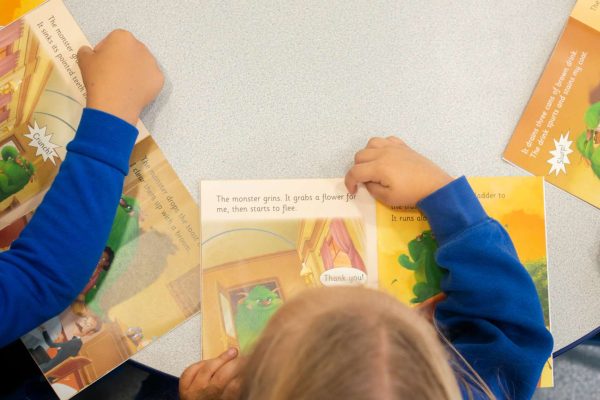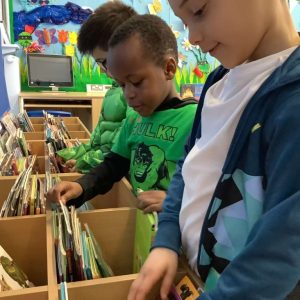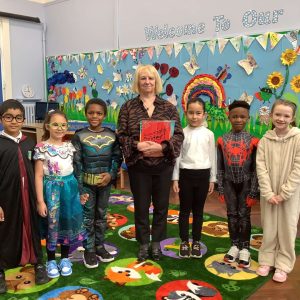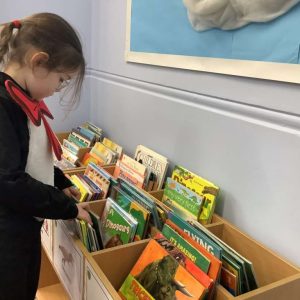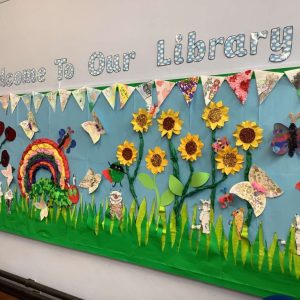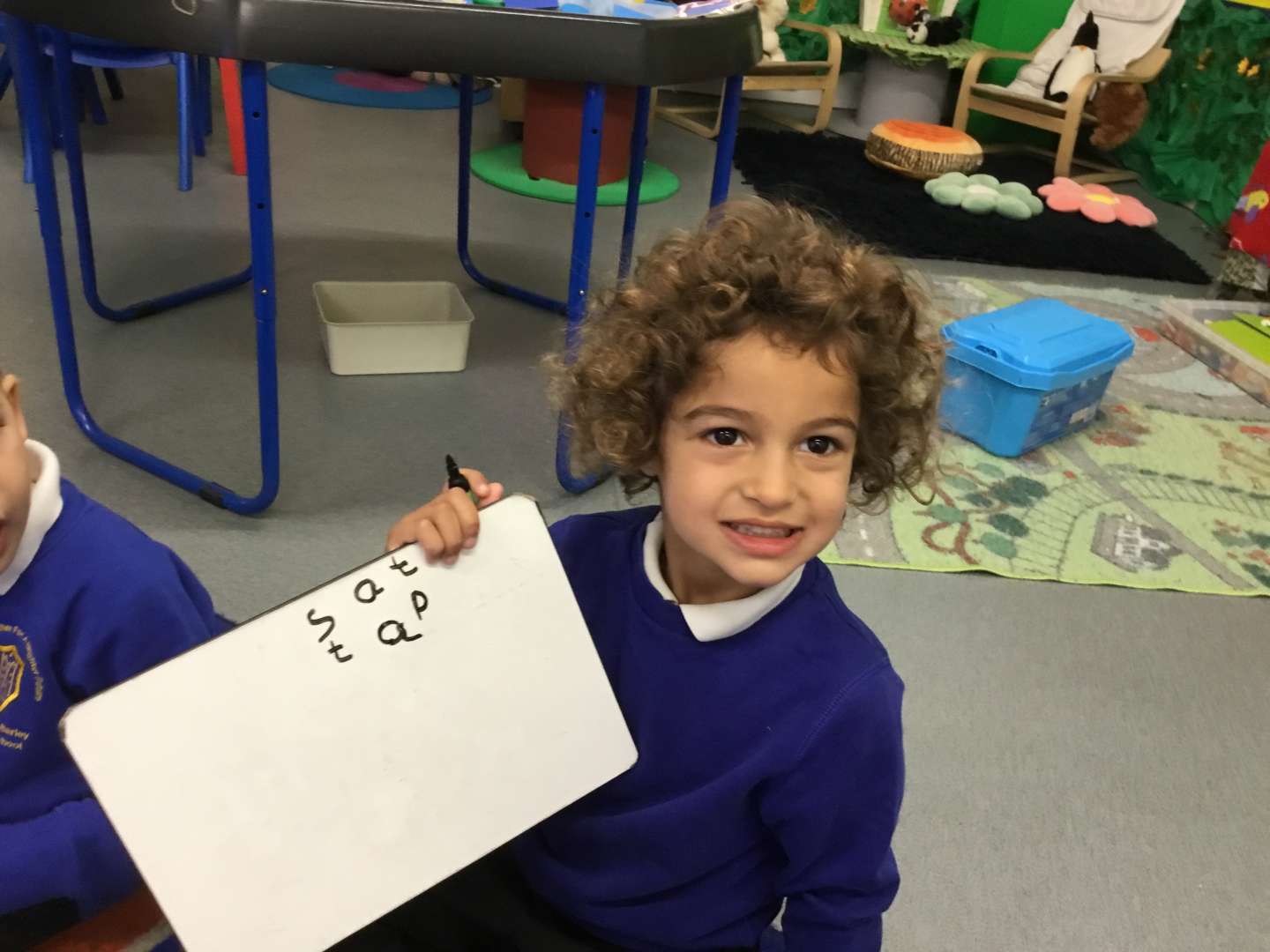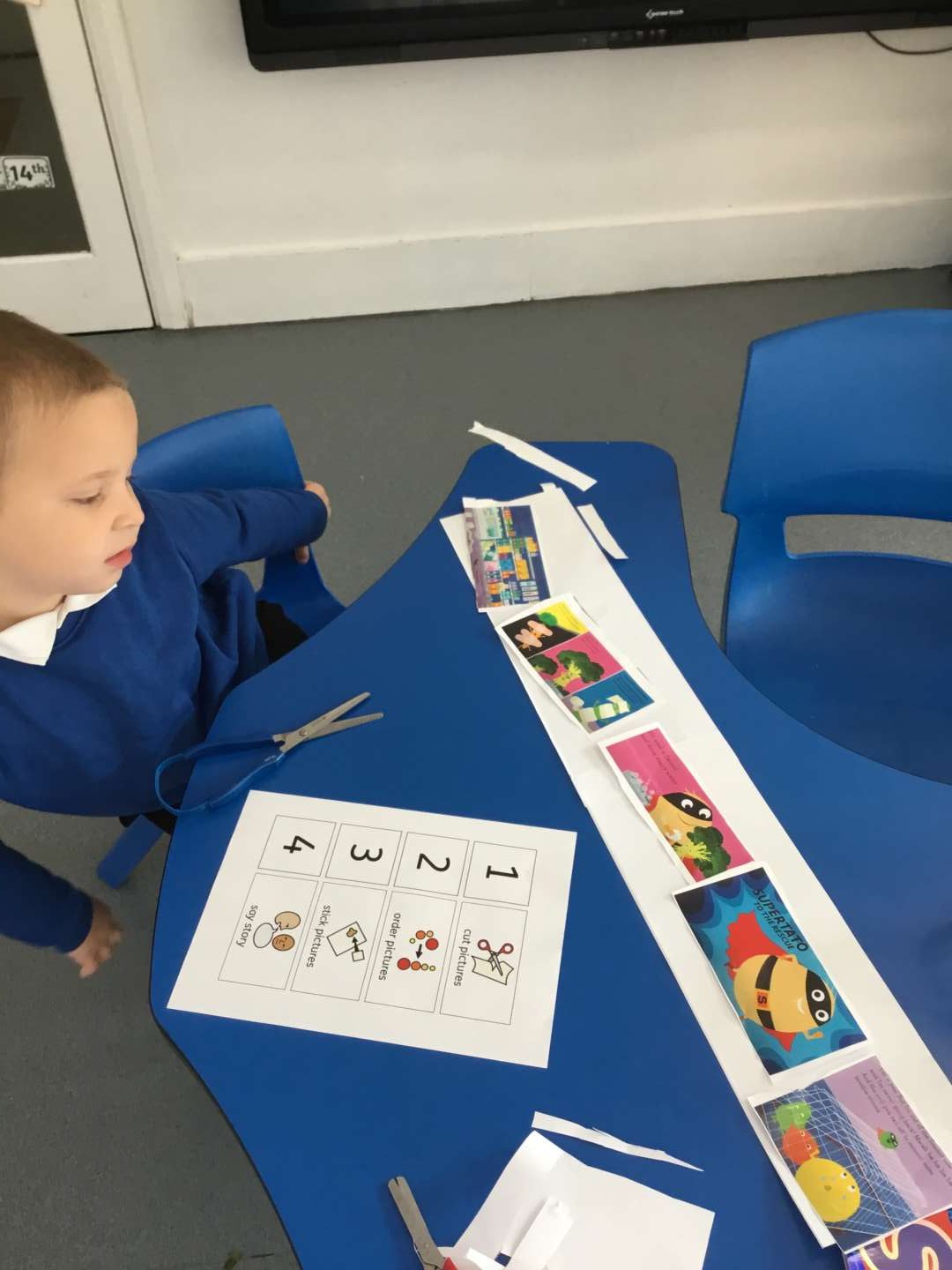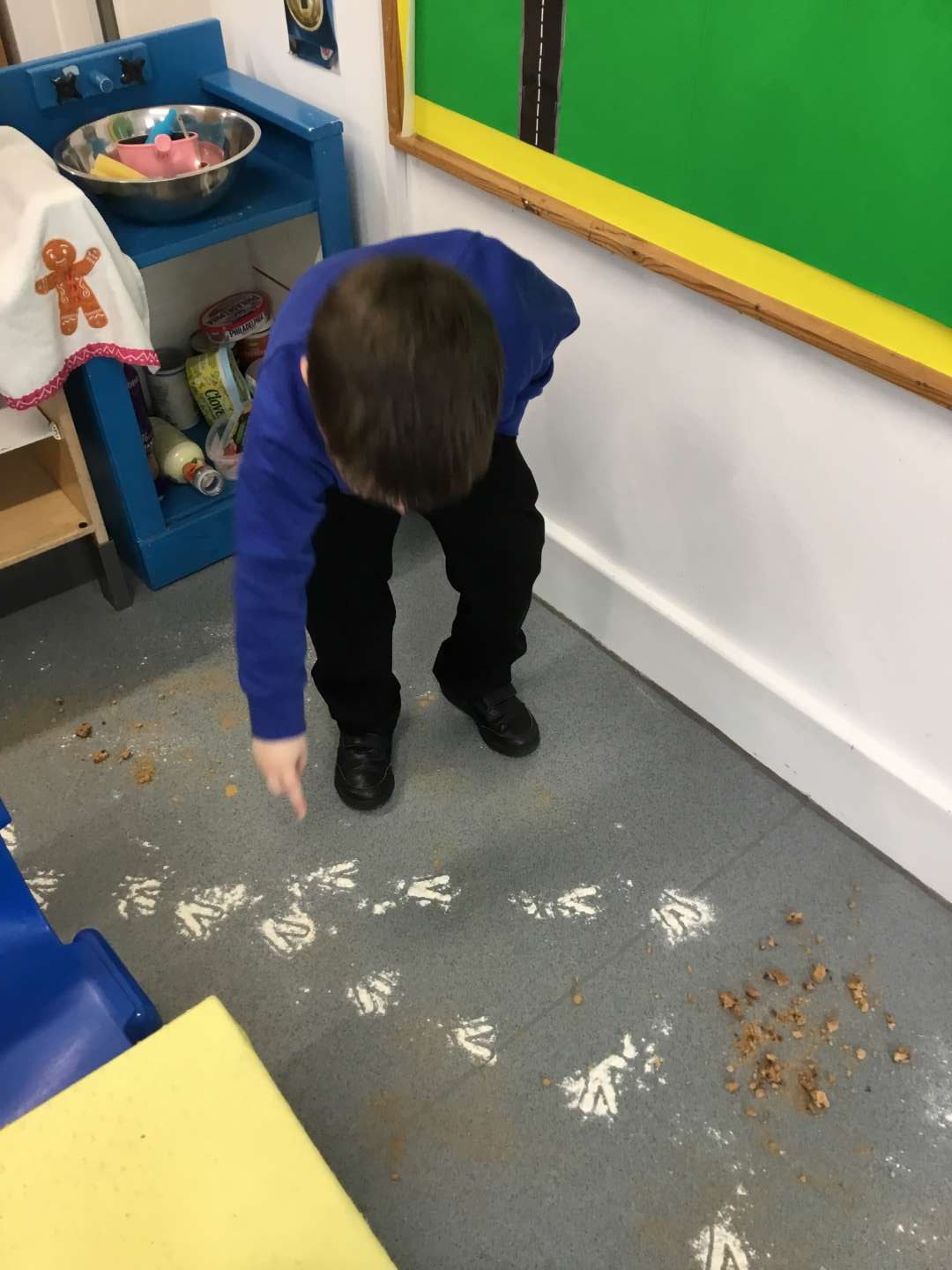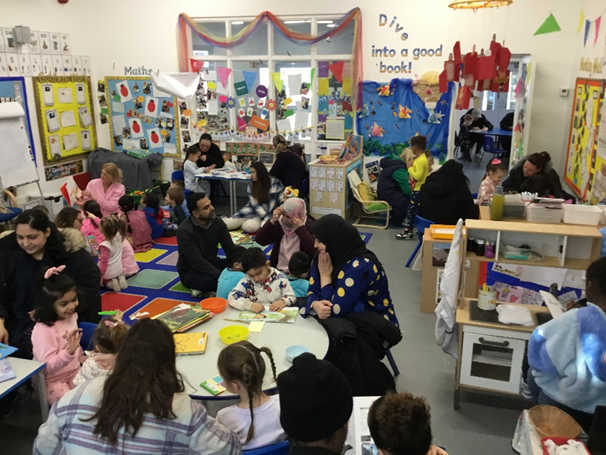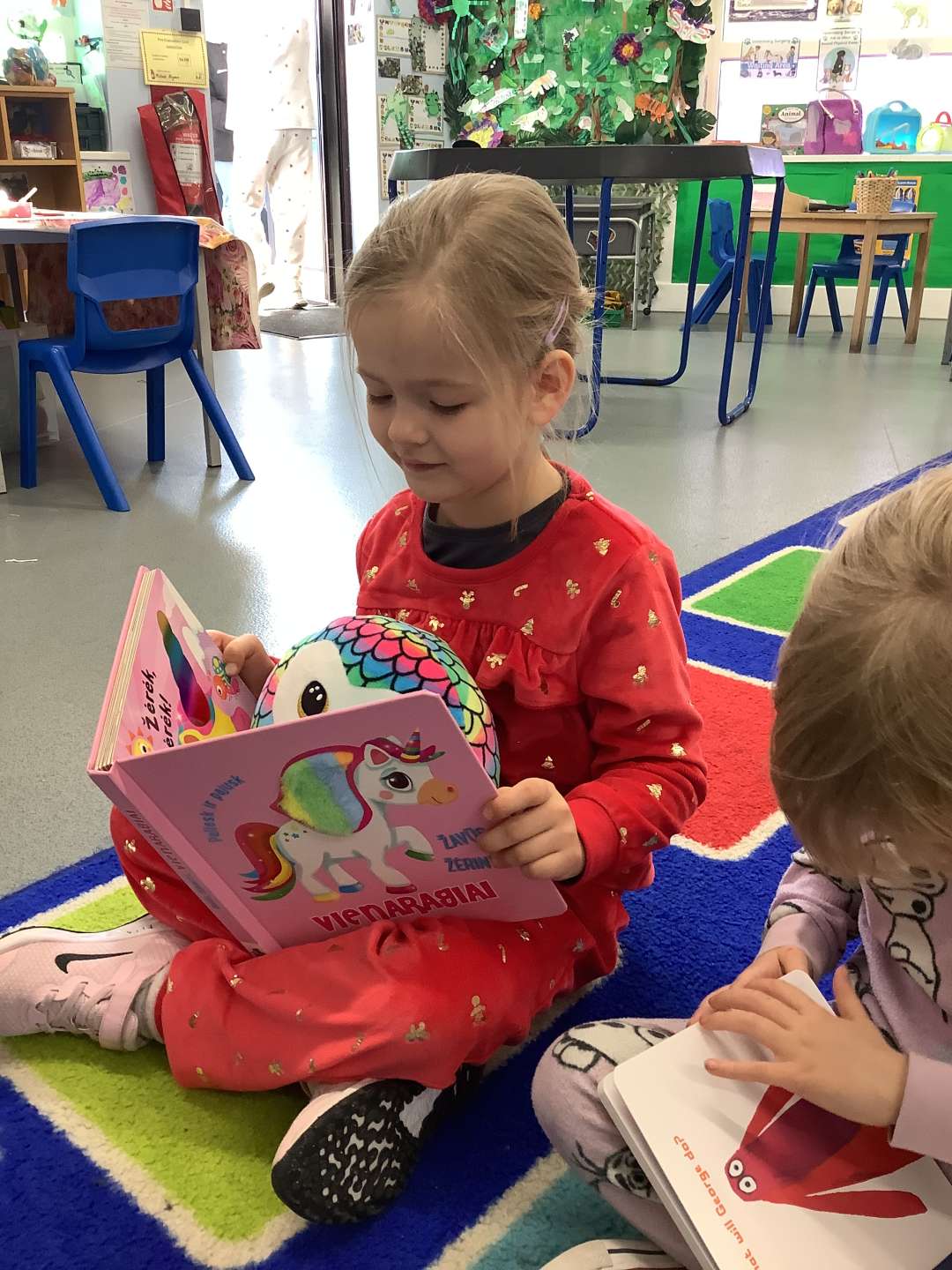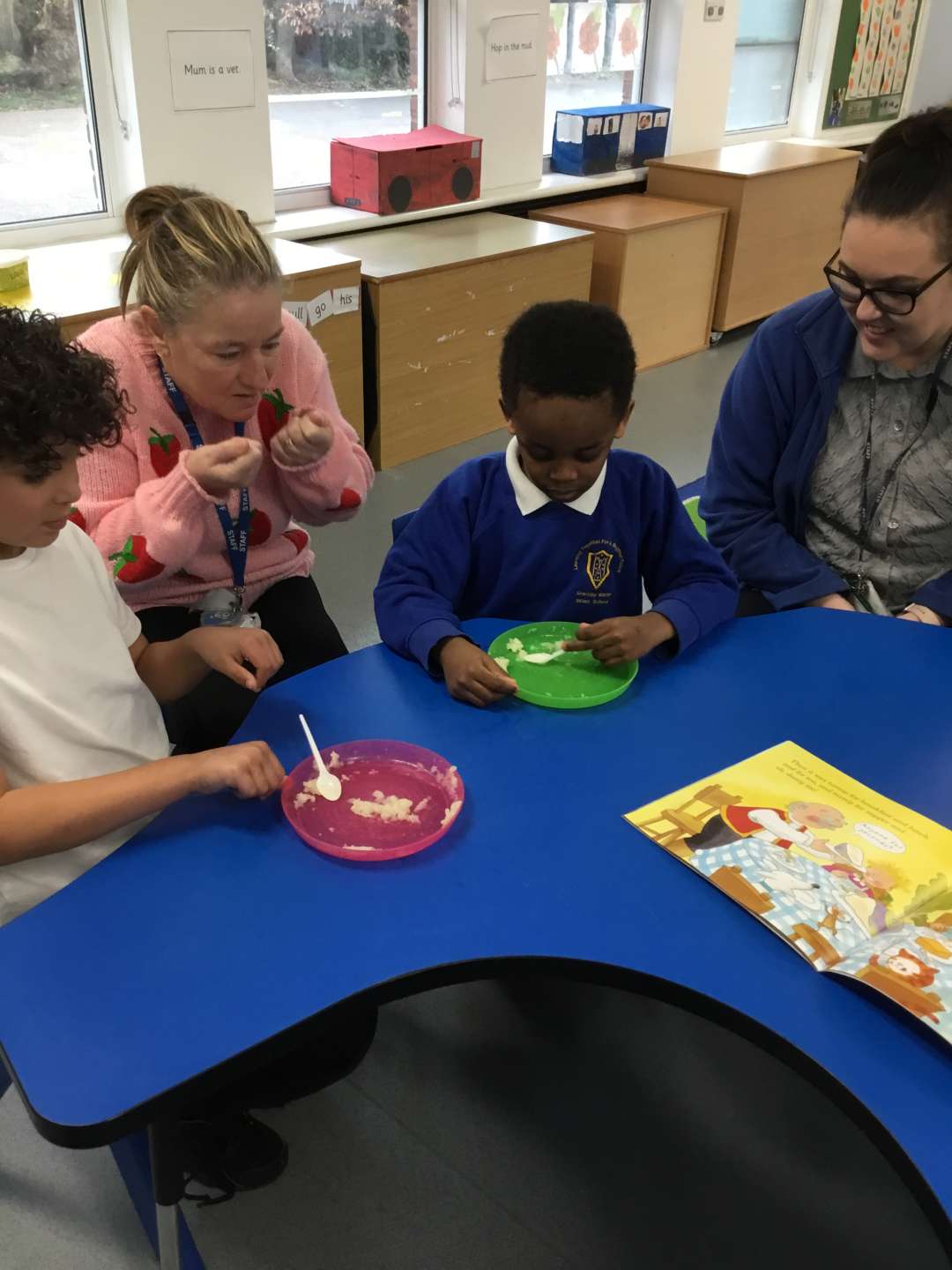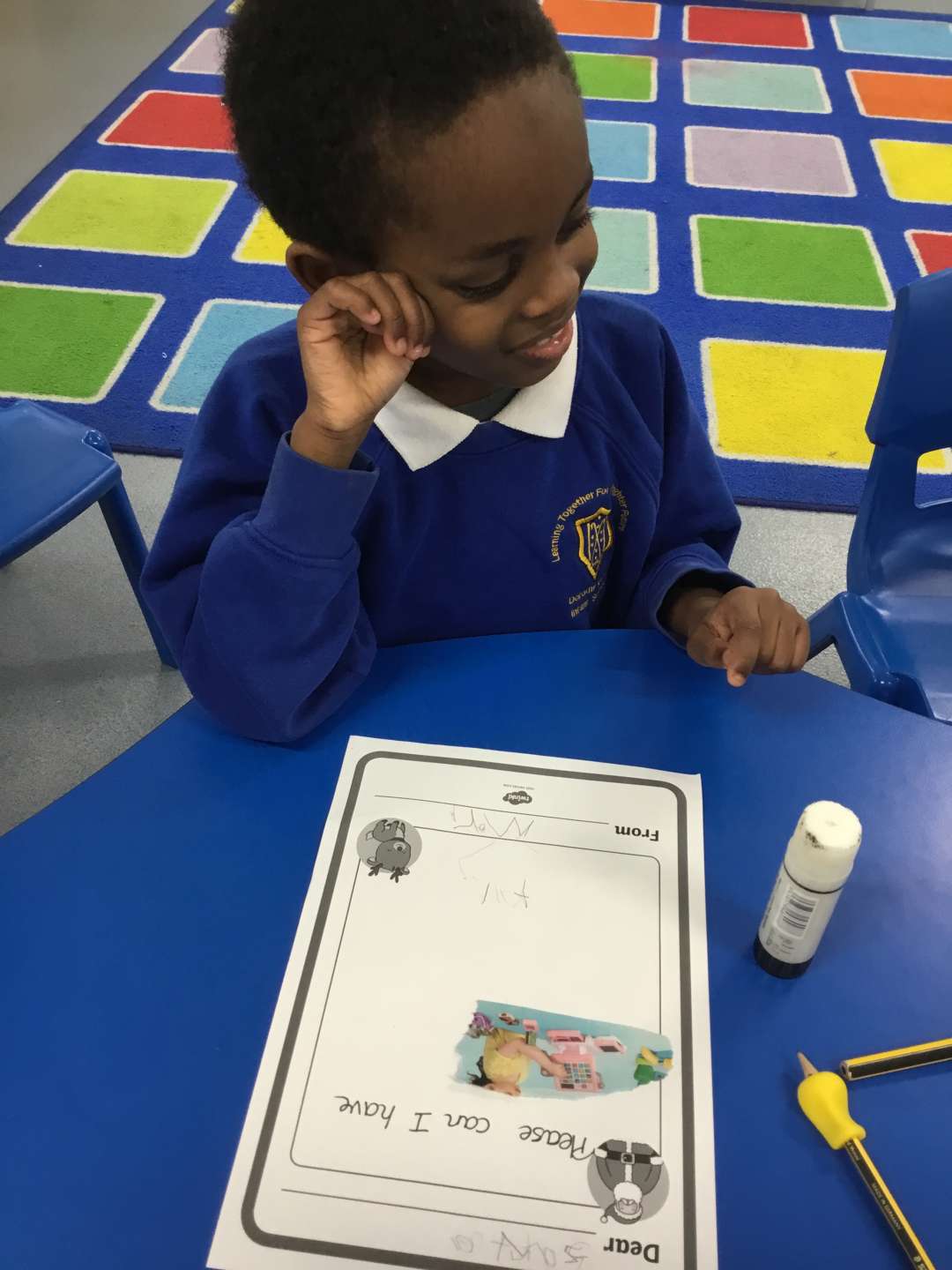Reading
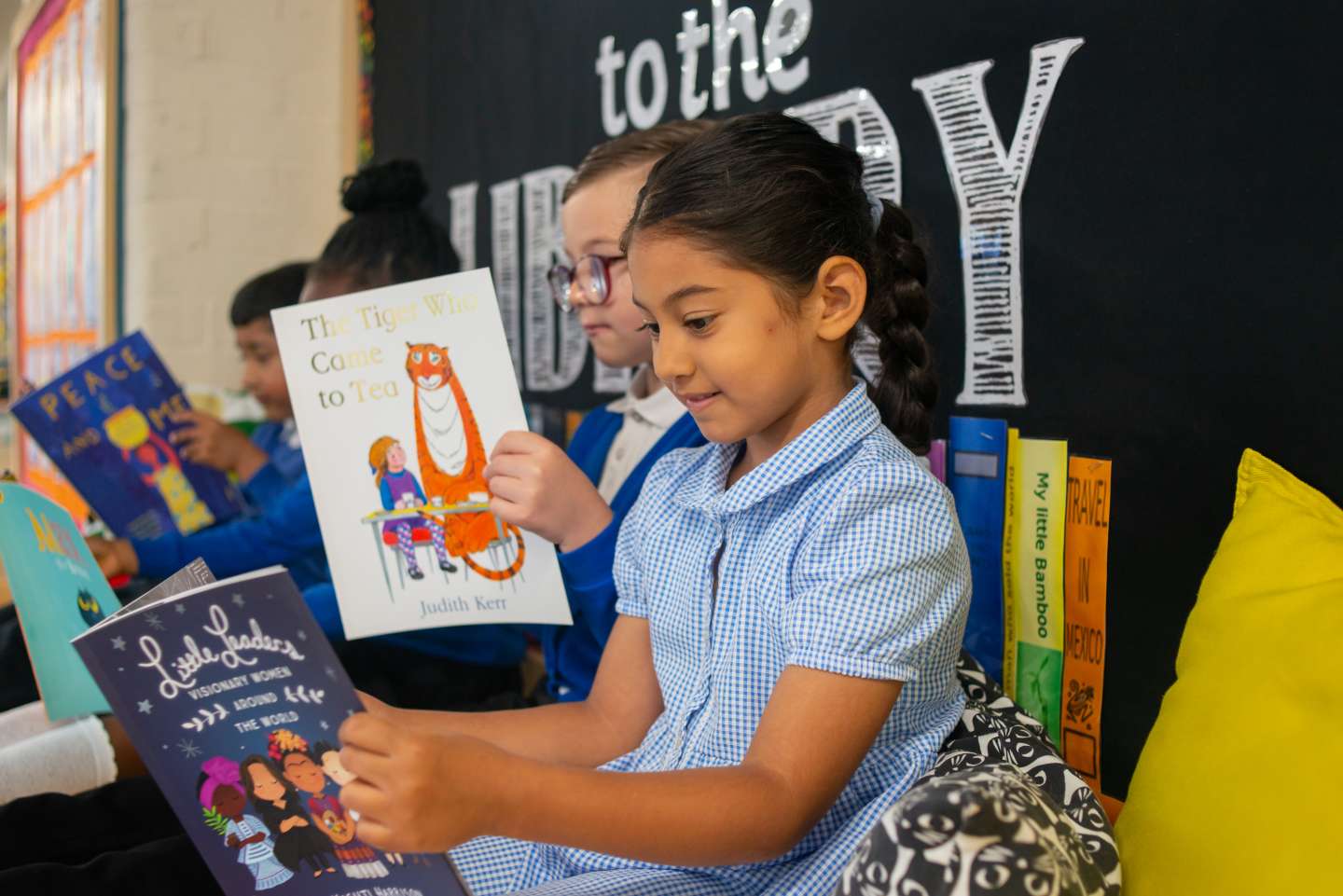
Reading has the highest priority at Dorothy Barley Infant School. We are committed to ensuring that all children become fluent readers by the age of seven, who leave our school with a genuine love of reading.
Reading is the door to creativity, to visualisation and to greater knowledge; it is the gateway to fantastic, impossible realms, planets and worlds. Research tells us that children who read for pleasure on a daily basis develop a wider vocabulary, greater general knowledge and a far better understanding of other cultures. It is perhaps one of the single most important factors in a child’s development. We therefore believe that it is every child’s right to learn to read, but we hope that our children go far beyond this to develop a true love and pleasure for reading.
Reading Culture
At Dorothy Barley Infant School, we are proud to foster a strong reading culture with reading at the heart of our bespoke curriculum. We believe that reading is the foundation for all learning, and this is reflected in all that we do.
From the moment children enter our school in the Nursery, they are immersed in high quality, representative texts. Our classrooms and reading environments are designed to spark a love for stories and language. All staff understand the importance of reading and promote reading for pleasure. This commitment to nurturing confident and enthusiastic readers ensures that every child leaves our school with a love of reading as a strong foundation for their learning in Key Stage Two and beyond.
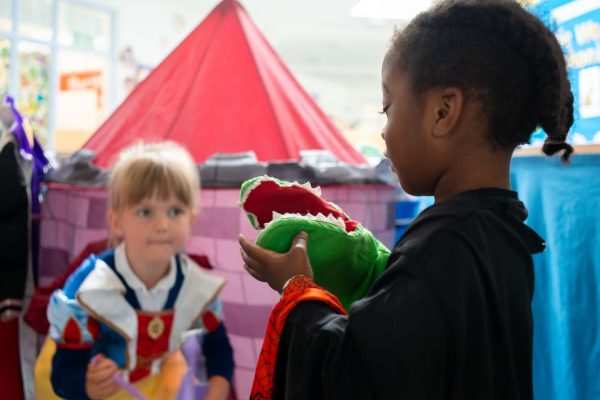
Reading Spine
Reading aloud is a key element of our strong reading culture. Every teacher dedicates protected time each day to read aloud to their class, sharing high quality texts from our bespoke Reading Spine.
As part of the Reading Spine, each year group has been assigned a range of texts for reading aloud. These texts have been carefully selected to ensure quality, rich language and representation for the children in our school. By the time they leave in Year 2, children will have had around 40 ‘essential reads’ read to them, creating a living library inside their mind.
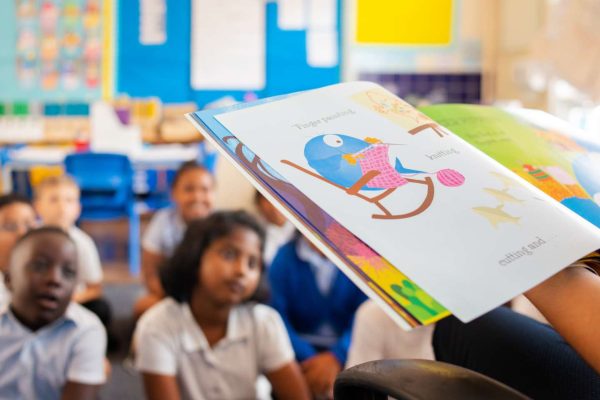
Reading Practice Sessions
At Dorothy Barley Infant School, we follow Little Wandle Letters and Sounds Revised, a systematic, synthetic phonics programme, to teach children to read. Children from Reception to Year 2 have three Reading Practice Sessions a week, working in a small group with a fully trained adult. In these sessions, children build their decoding skills, expand their vocabulary, learn to read with expression and develop their comprehension. Children read a decodable book carefully matched to their phonics knowledge.
School Library
At Dorothy Barley Infant School, we benefit from having a welcoming library designed to inspire a love of reading in all our children. Through working with the Foyle Foundation and the World of Stories programme, we have been able to ensure books in the library are modern and reflect different cultures, experiences and perspectives. Each class visits the library once a week, providing all children with the opportunity to explore new books and develop their love of reading.
Home Reading
At Dorothy Barley Infant School, we recognise the important contribution parents and carers play in their child’s reading journey. We encourage you to read daily with your child at home with the minimum expectation being that your child’s reading record is signed three times a week. In the early stages of learning to read, your child will bring home a decodable book linked to their phonic knowledge. Alongside this, they will bring home a library book. This book is not matched to their reading level and is instead chosen to develop your child’s love of reading. We encourage you to read and share this book together
Wider Curriculum
As well as reading in their English and Reading sessions, children often read texts related to the wider curriculum theme. This ensures that the children continue to have exposure to high quality texts that can inform their learning in the foundation subjects. The school also has a bank of high quality non-fiction texts that can be accessed during curriculum lessons. Alongside this, we send home half-termly ‘Recommended Reads’, texts that support learning in the wider curriculum theme currently being taught at school. These can be found on our Curriculum Overviews.

